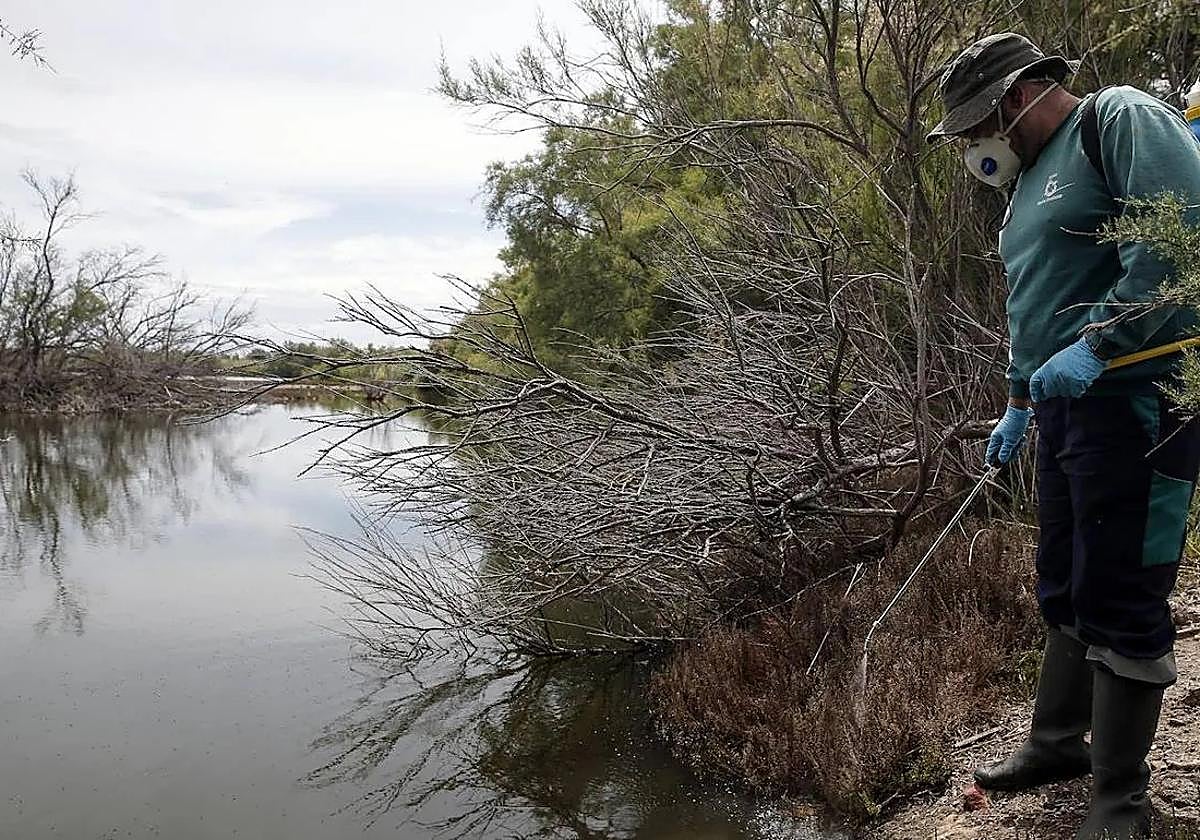Health ministry detects the Nile Virus 'earlier' than ever in Andalucía
Two traps have captured mosquitoes with positive results for WNV in Seville province
E. PRESS
Friday, 21 June 2024, 17:25
The Ministry of Health and Consumer Affairs of Andalucía's regional government published the first weekly report on Friday regarding the surveillance of Culex mosquitoes and the presence of the West Nile Virus (WNV).
The report, covering surveillance with traps conducted from 3 to 9 June, indicates WNV positivity in several mosquito batches (Culex perexiguus and Culex pipiens) captured in Dehesa de Abajo (La Puebla del Río, Sevilla) and Villamanrique de la Condesa (Sevilla) using traps from the Doñana Biological Station-CSIC and the Ministry of Health and Consumer Affairs.
According to the regional government, this represents "the earliest detection of WNV positivity we have had in Andalucía since we started monitoring WNV in mosquitoes," as noted in a press release. The two traps that captured WNV-positive mosquitoes are located in rural areas, more than 1.5 kilometres away from populated areas.
The territorial delegation of health and consumer affairs of Seville has alerted the municipalities involved about the situation so they can step up efforts in monitoring, controlling, and informing the public, as outlined in their local plan for controlling disease-carrying insects. Andalucía has a thorough program to monitor and control West Nile Virus (WNV), including guidelines and an updated risk map for all municipalities in Andalusia, developed by the environmental health service.
These documents have been adjusted to reflect the situation in Andalucía, incorporating knowledge gained in recent years. Local health authorities, based on the risk level of each municipality, must take steps to prevent the virus from spreading and potentially infecting people.
These actions are crucial when when there is evidence of the virus circulating. Finding infected mosquitoes highlights the importance of regular insect monitoring to detect virus spread early and prevent it from reaching the population.
Through surveillance traps, the densities of mosquitoes that are potential disease transmitters are monitored, and, as in this case, subsequent analysis verifies if they are infected with WNV. The Ministry of Health and Consumer Affairs has 26 traps located in municipalities of Cadiz, Cordoba, Malaga, and Seville, providing detailed information on captures and detected positives weekly during mosquito season.
WNF is a disease that is maintained in nature through a cycle of transmission between birds and mosquitoes. Infected mosquitoes can bite humans and transmit the disease to them (as in horses), although a person does not subsequently transmit the disease to others, nor does he or she have the ability to infect a 'healthy' mosquito to function as a vector for transmitting the disease.
For these reasons, traps are often located in rural areas outside the population centre, in order to be able to verify WNV circulation and/or a high density of mosquitoes in a rural environment before an issue arises in urban settings.
